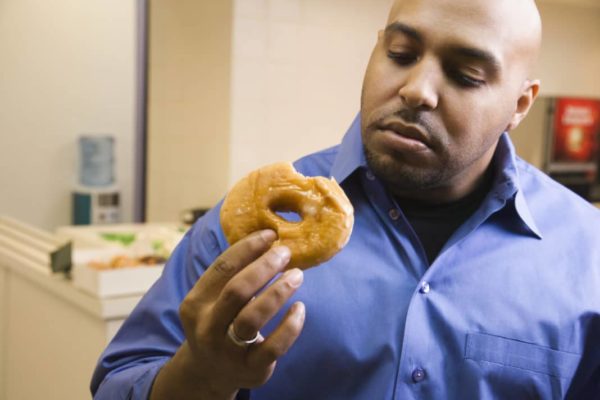
Researchers found a 12 percent rise in cancers in those with an increased intake of ultra-processed foods. (Photo by DreamPictures/Getty Images)
Stop and step away from the chicken nuggets. And that soda too.
A new study into what are known as ultra-processed foods, or foods pumped with a ton of sugar, colorings and other additives, suggests that the often tasty snacks may be linked to cancer.
The report, conducted in France and published in the British Medical Journal this week, reviewed the medical records and eating habits of close to 105,000 adults who have monitored their consumption of 3,300 different food items for the last nine years, USA TODAY reported. What researchers found was that a 10 percent increase in these ultra-processed foods was linked to a 12 percent increase in cancers.
Researchers also looked into whether the foods caused spikes in specific types of cancer, revealing an 11 percent increase in breast cancer but no significant upturn in colon and prostate cancers.
“… If confirmed in other populations [and] settings, these results suggest that the rapidly increasing consumption of ultra-processed foods may drive an increasing burden of cancer in the next decades,” researchers wrote.
Ultra-processed foods are common in both American and UK households, and include everything from soft drinks and snack cakes to frozen dinners and instant noodles. In addition to inorganic flavorings and preservatives, these items also often contain high levels of sugar, fat and salt.
It’s no surprise then that frequent eaters of these foods are also at a higher risk of obesity.
“It is already known that eating a lot of these foods can lead to weight gain, and being overweight or obese can also increase your risk of cancer, so it’s hard to disentangle the effects of diet and weight,” Professor Linda Bauld of Cancer Research UK told BBC.
Bauld added that, overall, the study is a “warning signal to us to have a healthy diet” but that folks shouldn’t be afraid to enjoy a processed snack “here and there,” so long as they are mostly filling up on fruits and veggies. Mathilde Touvier, lead author of the food study, echoed the same caution on the findings, saying more research needs to be done.
“The results are very strong – very consistent and quite compelling,” Touvier told The Guardian. “But we have to be cautious. It is the first study. We should not be alarmist. These results need to be confirmed in other prospective studies.”

